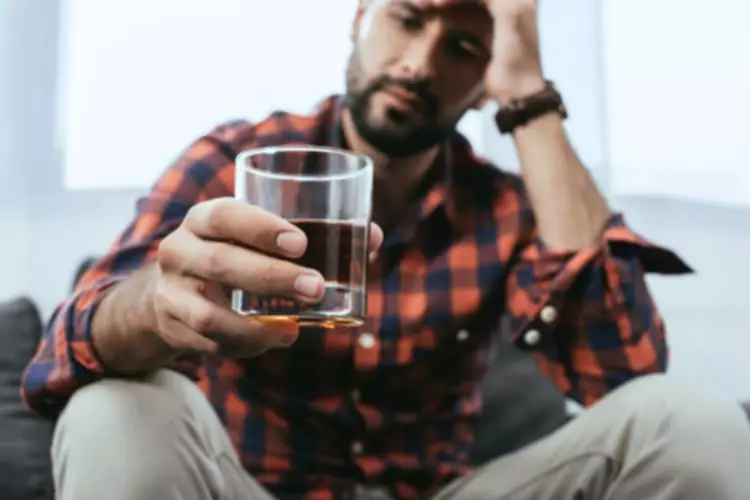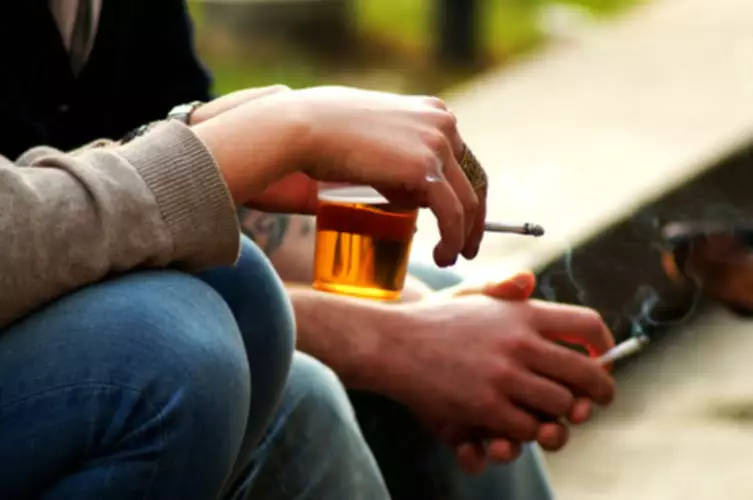Alcohol & Night Sweats: The Effects of Drinking

I didn’t realize that alcohol withdrawal can cause anxiety because of its effect on the central nervous system. Alcohol acts as a sedative, so when you take it away, the body goes into a heightened state of alertness. This overactive nervous system creates feelings of nervousness and anxiety as your body tries to cope with Sobriety the absence of alcohol.
The Benefits of Shared Experiences in Group Therapy
In fact, among all these options, alcohol is the most widespread means of escape that many take refuge in order to temporarily relieve themselves from the never-ending stress of life’s demands. On the other hand, the thin balance between reasonable use of alcohol and heavy dependence should be treated with the highest caution. This addiction has damaging repercussions on their physical and mental health. One study of alcohol’s effects on body temperature showed that sweating and the sensation of heat increased significantly 10 minutes after consuming alcohol. I always thought alcohol helped me sleep, but that was far from the truth. Alcohol disrupts your sleep cycles, especially REM sleep, which is crucial for rest.
- If you’ve come home after a night of binge drinking and start sweating in your sleep, this can be attributed to any of the causes of sweating while drinking.
- Find answers to common questions about how alcohol causes night sweats during withdrawal, how long they last, and alcohol abuse treatment options.
- If you’re experiencing frequent night sweats, regardless of alcohol intake, it’s important to consult with a healthcare professional to rule out any potential medical issues.
Improving Sleep Hygiene
By addressing alcohol consumption, making lifestyle changes, and seeking medical advice when necessary, you can take steps toward managing night sweats and promoting better overall well-being. Additionally, alcohol can impact hormone levels and disrupt normal sleep patterns. Alcohol’s effects on hormones, such as cortisol and adrenaline, can interfere with the body’s natural temperature regulation and contribute to night sweats.
Understanding the Risks of Co-Occurring Disorders
- One of the primary ways alcohol can contribute to night sweats is by affecting body temperature regulation.
- However, if your night sweats persist beyond this period, it’s crucial to seek further medical guidance and consider an alcohol rehab program.
- We recently launched our in-app chatbot, Melody, powered by the world’s most powerful AI technology.
- Frequent awakenings and nightmares may occur after drinking alcohol, no matter how much or how little alcohol you drink.
The length and severity of alcohol withdrawal symptoms, such as night sweats, can differ based on various factors. These include the person’s level of alcohol dependence, the duration of their drinking habits, their overall health, and any previous experiences with withdrawal. Alcohol impacts our entire body, and causes many side effects that aren’t often spoken about.
- Try to drink at least one glass of water for every alcoholic drink you enjoy.
- Furthermore, we are aware of complications that come with the ease of availability and lawfulness of alcohol.
- Alcohol affects multiple systems in the body, including the central nervous system and circulatory system.
- Furthermore, night sweats can also be influenced by factors such as the use of certain medications (e.g. steroids, antidepressants), menopause, and other health conditions.
- Setting a daily sleep routine and practicing relaxing evening habits will help normalize the circadian rhythm for improved overnight sleep.

It is best that people with alcohol dependency or intolerance speak with a doctor. Alcohol recovery involves setting goals, building routines, creating a support system, practicing self-care, and managing triggers to maintain lasting sobriety and well-being. Behavioral health treatment for alcohol problems is often (but not always) covered by insurance. In the United States, most states have low-cost or free rehabilitation programs for those who are uninsured. If you or someone you know shows signs of delirium tremens, go to the emergency room immediately. Don’t hesitate to reach out and take the first step towards a healthier, happier, and sweat-free future.
Do you sweat more if you’re an alcoholic?
Treatment options can range from outpatient counseling and support groups to residential rehabilitation programs, depending on the severity of the condition. These programs can provide the necessary support and resources to address alcohol-related issues and help individuals on their path to recovery. A doctor can provide a comprehensive evaluation and diagnosis to determine the underlying causes of night sweats and assess any potential alcohol-related issues. They can also offer guidance and support for safe alcohol cessation if withdrawal symptoms are present. When it comes to alcohol consumption, there are certain risks and complications that can arise, including the potential for night sweats.
Handling alcohol withdrawal is not an easy task alcohol and sweating and demands proper procedures, which are crucial in achieving recovery. You have to keep in mind that some of those steps might be very small changes. However, it’s important to celebrate these advancements because it will help you keep on moving forward. In today’s world characterized by high speeds as well as pressure, the intensity of life is prevalent, necessitating people to resort to different relief avenues.

- If you’re experiencing alcohol-related sweating, it’s important to be aware of other symptoms that may indicate liver issues, like jaundice or abdominal pain.
- Additionally, alcohol can impact hormone levels and disrupt normal sleep patterns.
Night sweats are common symptoms of these infections, so it’s essential to monitor your health if you’re drinking regularly. If you’re experiencing night sweats from alcohol consumption, it’s important to seek help and consider treatment options. Managing alcohol consumption and consulting with a doctor are two crucial steps in addressing this issue. As mentioned earlier, this heat contributes to an increase in core body temperature, prompting sweat glands to kick into action. Over time, repeated exposure to alcohol may lead some individuals to develop a tolerance not just for its intoxicating effects but also for its physiological side effects—like sweating. Alcoholism is a disease that includes alcohol craving and continued drinking despite repeated alcohol-related problems, such as losing a job or getting into trouble with the law.

The length and severity of symptoms differ for everyone, shaped by health status, frequency of alcohol use, and personal factors. For some, these night sweats may only last a short while; for others, they extend for days or even weeks. If you’re a steady drinker or face an alcohol addiction, you might develop certain symptoms when you haven’t had a drink for a while. This reaction is known as withdrawal, and heavy sweating is a classic sign.